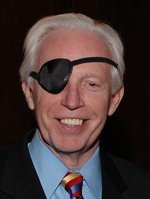 |
| 리처드 W 란 美 세계경제성장연구소 총재 |
지폐의 상태는 깨끗해 보일지 모르나 불결한 때가 많다. 즉 지폐는 다수의 위험한 미생물이 살기에 적합하다. 지폐는 체온으로 따뜻한 상태가 유지되고 심지어 몸의 수분까지 공급된다. 악성 세균의 생존에 최적의 조건을 갖추고 있다.
지폐가 중요한 전염병 감염 통로란 사실은 수십 년 전에 이미 확인되었다. 일반적인 지폐 한 장은 수명이 다해 폐기될 때까지 수천 명까지는 아닐지라도 수백 명의 손을 거친다.
지폐를 만진 탓에 매년 수백만 명이 병에 걸린다. 환자 가운데 만만치 않은 비율이 죽는다. 질병통제예방센터는 매년 3만6000명의 미국인이 독감과 합병증 때문에 죽는 것으로 추산한다. 지폐로 인해 독감에 감염된 환자의 비율은 어느 정도일까. 정확한 수치는 알 수 없으나 단지 10%만 잡아도 수백만 명이 불필요하게 독감에 걸려서 수천 명이 죽게 된다.
디지털 시대에는 지폐를 사용하지 않아도 문제가 없다는 것은 좋은 소식이다. 모든 유형의 지불이 전자결제로 가능하다. 인터넷 뱅킹, 카드결제, 휴대전화 결제 등이 그것이다. 이런 결제 방법을 쓰는 사람은 더러운 지폐를 만질 필요가 없다.
정부의 각종 정책이 전자결제 이용에 제동을 건다는 것이 나쁜 소식이다. 대부분의 전자결제 시스템은 사용자의 은행계좌를 필요로 한다. 지난 수십 년 동안 은행계좌를 보유한 인구의 비율이 증가했지만 정부가 돈세탁과의 전쟁을 시작하면서 이삼십 년 전부터 성장이 멈추었다. 돈세탁과의 전쟁으로 어쩔 수 없이 지폐를 사용하는 사람의 수가 늘어난 것은 역설이다.
지폐를 만드는 데 돈이 많이 든다. 위조지폐가 나올 수 있고 절도에 취약하며 보관이 만만치 않다. 또한 질병의 전염원이 되기도 한다. 합리적이고 책임 있는 정부라면 지폐 유통을 줄이기 위해 모든 방법을 동원할 것이다. 그러나 국회의원들과 정부 정책 수립자들은 지폐 제조의 비용과 질병 전염에 따른 위험보다 시민의 금융 사생활 파괴와 세금 징수를 더 중요하게 생각한다.
사람들이 지폐 사용을 중지하는 데는 전제조건이 필요하다. 즉 전자결제를 손쉽게 이용하고 추적 불가능한 익명성을 보장받아야 한다. 은행, 통신회사 등의 전자화폐 보존과 거래의 익명성 보장을 위한 암호 소프트웨어 기술은 이미 개발이 끝났다.
세계의 많은 지역에서 휴대전화로 송금하는 것이 보편화되었다. 개도국의 휴대전화 결제 시스템 사용이 급증하고 있다. 이런 속도로 디지털 기술이 보급되면 머지않아 지폐의 폐지도 가능해질 것이다. 불행히도 전 세계의 정치인들 때문에 그렇게 될 가능성은 없다. 정치인들과 국제 관료들은 전자화폐 결제처럼 통제하기 어려운 시스템 사용을 점점 제한하고 있다. 정치인들이 고객의 신원 파악과 돈세탁 방지를 강력하게 요구하기 때문에 은행 계좌를 개설하는 사람들의 수가 줄어든다. 거래 경력이 없는 청소년들과 빈곤층 및 임시직 취업자들이 불리하다. 이런 계층은 어쩔 수 없이 비위생적인 지폐를 사용하게 된다.
정치인들은 고객들의 거래 내역을 파악하여 정부 당국에 보고하라는 압력을 가중시키고 있다. 이는 개인의 금전거래 명세를 인터넷에 게시하는 것이나 마찬가지로 사생활을 침해하는 조치다. 배우자나 사랑하는 사람에게 줄 선물 구입 대금이나 자선 기부금처럼 일부 지출 내역은 공개하고 싶지 않은 일도 있게 마련이다.
전자화폐 거래가 지폐 사용과 동일한 익명성을 보장받을 때까지는 사람들이 지폐 사용을 포기하지 않을 전망이다. 반면에 정치인들과 관리들이 전자 거래 규제의 폐해를 알아차리지 못할 정도로 어리석거나 시민의 복지에 무관심한 탓에 매년 수백만 명이 불필요하게 질병에 걸리고 그중 수천 명은 목숨을 잃게 될 것이다.
리처드 W 란 美 세계경제성장연구소 총재
워싱턴 타임스·정리=오성환 외신전문위원
Currency that kills
By Richard W. Rahn
Can you imagine how many people have physically handled your money? Do you know who has previously touched it? Did they have a flu virus or some other communicable disease that is transmitted by physical contact with an infected object? Physical paper currency is often dirty - not so much to the sight, but it is a good home for dangerous microbes. It is often kept warm by our body heat and even absorbs some body moisture - a perfect breeding ground for bad stuff.
It has been well-known for decades that paper currency is a major source of disease transmission. During the life of the average dollar bill, it will be handled by hundreds, if not thousands, of people. It is hard to think of any physical object that is handled by more different people than paper currency. Millions become ill every year as a result of handling currency, and a not insignificant percentage of them die. The Centers for Disease Control and Prevention (CDC) estimates that 36,000 Americans die each year from flu-related causes. How many people received the flu from paper currency? The precise percentage is unknown, but if it is just 10 percent, that still translates into a couple of million needlessly ill people and thousands of deaths.
The good news is that it is no longer necessary to use paper currency in the digital age. Payments of all types can be made by electronic means - with electronic banking; credit, debit and smart cards; and cell phones - all of which help the user avoid physical contact with dirty paper money. (Note: Most paper currencies are made largely from cotton cloth, which makes them very absorbent.)
The bad news is that government policies are slowing down and, in many cases, preventing the movement to the use of digital currencies. Most electronic payment systems require the user to have a bank account. For decades, the percentage of the population having a bank account grew, but that growth stopped a couple of decades ago as the government started its war on money laundering - which, ironically, resulted in the unintended consequence of requiring more people to handle dirty paper money.
Physical money is expensive to produce. It is subject to counterfeiting, easily stolen and costly to handle. As noted, it is a major transmitter of disease. A rational and responsible government would be doing everything possible to eliminate physical currency. But no - legislators and policymakers have put destruction of the citizen's financial privacy and tax collection above reducing the costs and dangers of physical currency.
People will only move away from paper currency when they can easily use an "electronic wallet" and have the ability to make non-identifiable and non-traceable transactions. As noted above, an electronic wallet can be a credit, debit or smart card - a cell phone or a PC. The electronic money can be held in an electronic chip within the cell phone or other device or in a depository account that can be in a bank, telecom company or some other depository institution. Encryption software has become sufficiently robust to protect users of digital money and is far safer than holding or handling physical cash.
In many parts of the world, monetary transfers by cell phone are becoming the norm - they are particularly useful for small payments. The Philippines has become a world leader in cell-phone payment systems and use. Cell-phone use is expanding at a very high rate through the developing world - already, in Africa, a third of the people have cell-phone subscriptions, most of which can be used for electronic payments. The fact is that the spread of digital technologies will soon make it possible for all paper currency to become obsolete, but unfortunately, that is unlikely to happen because of the global political class.
The politicians and international bureaucrats are increasingly limiting the ability of people to use non-highly regulated bank institutions as the depositories and clearinghouses for electronic money. As the political class demands ever-more-stringent and costly "know your customer" and other anti-money-laundering regulations, fewer and fewer people can qualify for bank accounts. The young, who have no financial track record; the poor; and those in transient occupations are particularly discriminated against and thus are forced to use inefficient, costly and unhygienic paper currency.
The political class is also increasingly requiring banks and other depository institutions to spy on their customers and reveal all transactions to government officials - which gives individuals about as much privacy as having all their expenditures posted on a public Web site. Almost everyone occasionally wants to keep some expenditures private; for example, not wanting a spouse or loved one to know how much one spent on a gift; making an anonymous or confidential contribution to a church, charity or other nonprofit group; or even using the Internet for legal gambling, porn, cigarette or alcohol expenditures, etc.
Encryption technology has developed to the point where electronic expenditures can be kept private if governments would only allow it. The fact is, people will not give up the use of paper currency, for good or bad reasons, until they know they will have the same anonymity with electronic money as they do with paper currency. Meanwhile, each year, millions of people needlessly get sick and thousands die because the folks who run Washington and the other world capitals are too dimwitted to understand the unintended consequences of their financial regulations - or are just plain callous.
encrypt:암호화하다 subscription:구독신청 transient:덧없는 dimwitted:바보의
Copyright ⓒ 세계일보. 무단 전재 및 재배포 금지
![[설왕설래] 휴대폰 개통 안면인증](http://img.segye.com/content/image/2025/12/24/128/20251224514544.jpg
)
![[세계포럼] 금융지주 ‘깜깜이’ 연임 해소하려면](http://img.segye.com/content/image/2025/12/24/128/20251224514519.jpg
)
![[세계타워] 속도 전쟁의 시대, 한국만 시계를 본다](http://img.segye.com/content/image/2025/12/24/128/20251224514427.jpg
)
![[한국에살며] ‘지도원’ 없이 살아가는 중국인 유학생들](http://img.segye.com/content/image/2025/12/24/128/20251224514493.jpg
)








